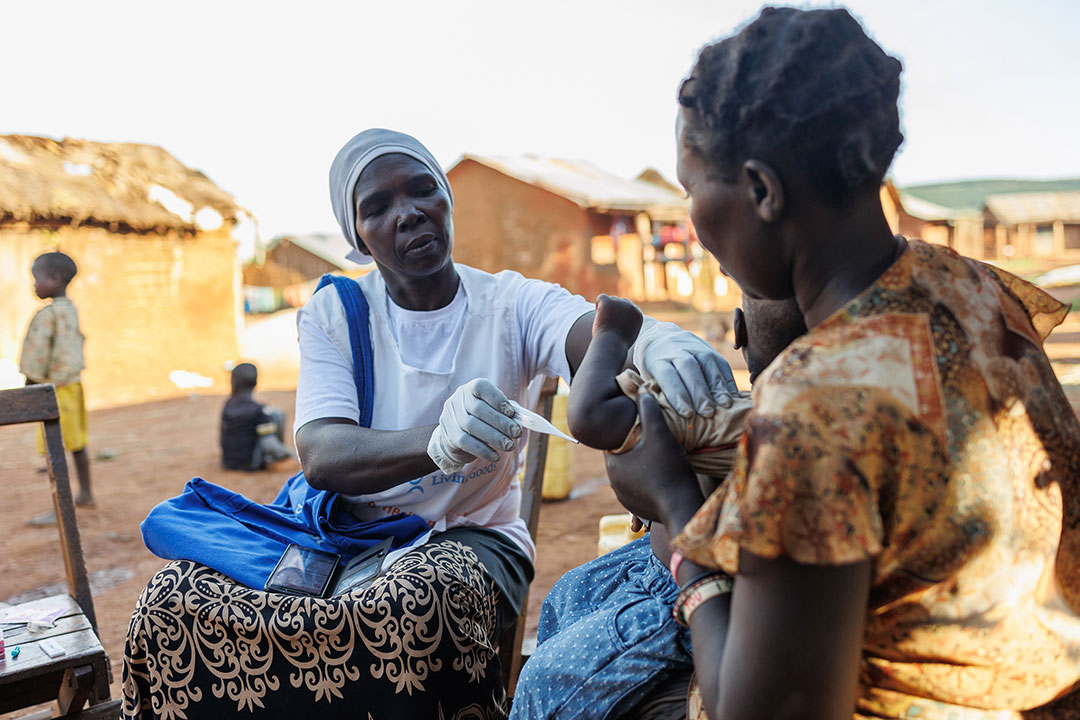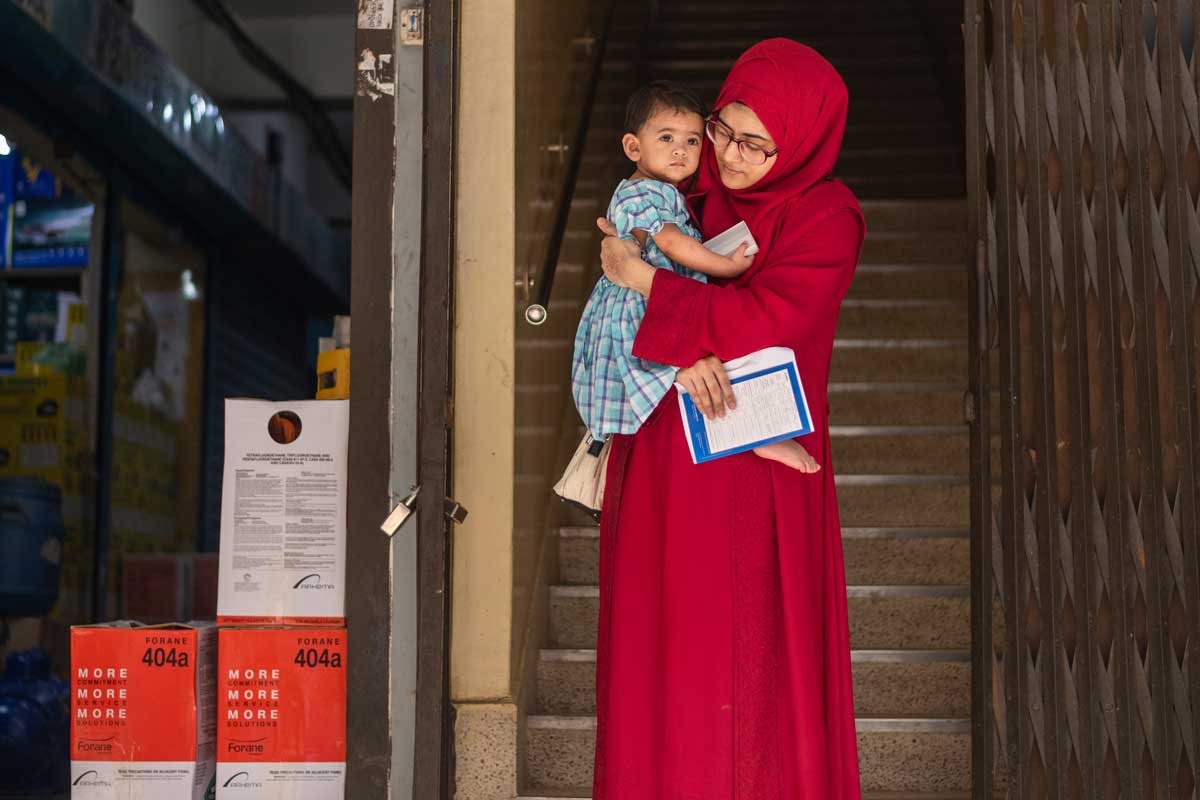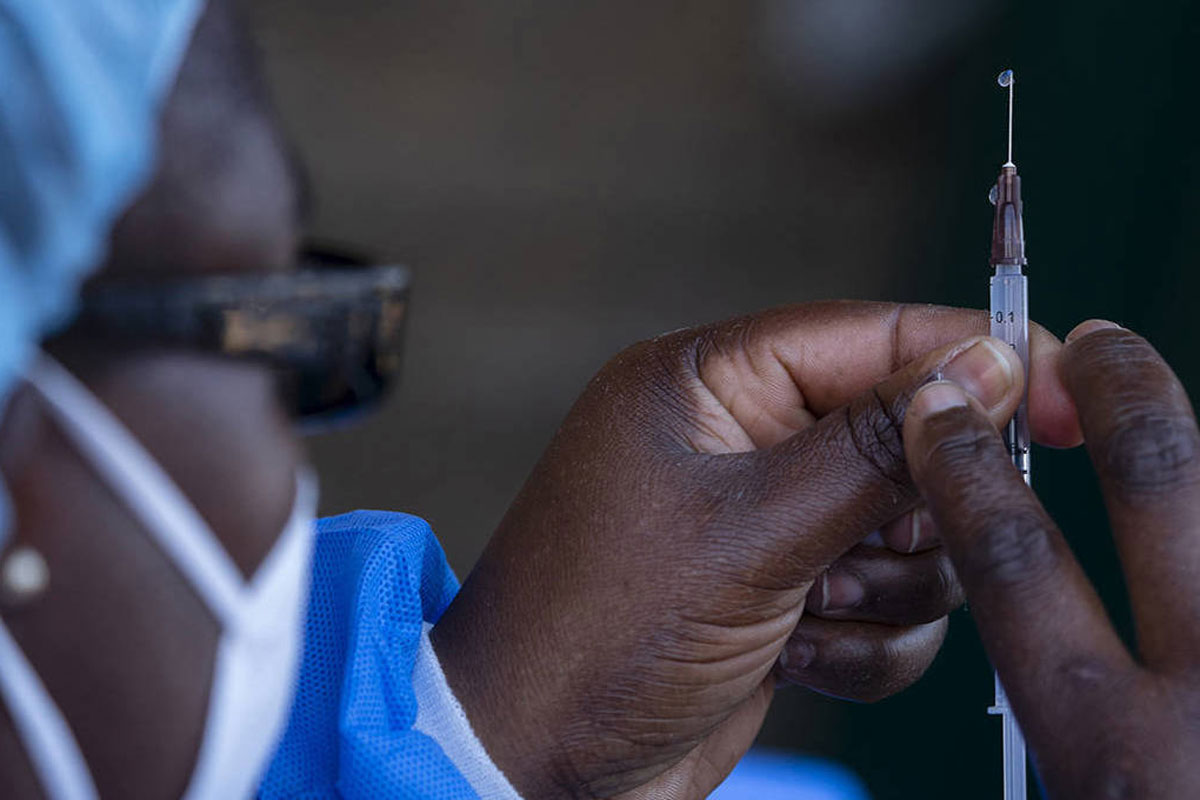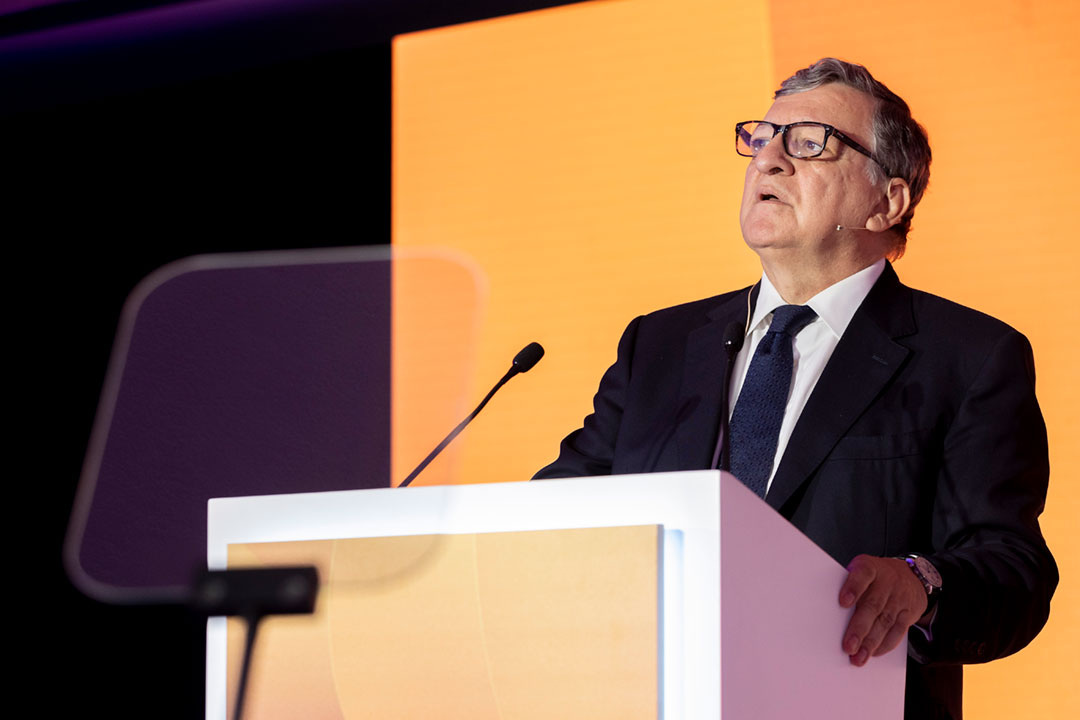On the road to recovery in 2022, a year of renewal in 2023
Prof José Manuel Barroso, Chair of the Gavi Board, and Gavi CEO (ad int) David Marlow on achievements and challenges in 2022, and priorities and goals for 2023.
- 28 September 2023
- 5 min read
- by José Manuel Barroso , David Marlow

Welcome to Gavi’s 2022 Annual Progress Report – the second of Gavi’s 2021–2025 strategic period. Even as the COVID-19 pandemic raged on in 2022, this report will show that immunisation coverage in lowerincome countries supported by the Alliance is recovering, with coverage of the third dose of diphtheria, pertussis and tetanus-containing vaccine (DTP3) rising by 3 percentage points in 2022.
According to the 2022 WHO/UNICEF Estimates of National Immunization Coverage, nearly half of lower-income countries have recovered to or are above pre-pandemic DTP3 coverage levels. And Gavi implementing countries have reached roughly the same number of children as pre-pandemic – with coverage not fully returning to 2019 levels due to population growth, particularly in Africa. However, some countries saw slower progress. The number of zero-dose children has fallen from 12.4 to 10.2 million. This represents impressive progress, but the number of zerodose children is still higher than the estimated 9 million in 2019, and a further 34% reduction is required to meet our 2025 target. As we reflect on the important progress and urgent challenges that remain, the Vaccine Alliance nonetheless acknowledges the tremendous effort countries have made to get routine immunisation back on track.
The year 2022 was indeed complex and challenging for global health. More people were infected with COVID-19 than in 2020 and 2021 combined; and by end August, more than 1 million people had died from COVID-19 in 2022 alone.
The pandemic’s negative impact on routine immunisation, resulting in the largest backslide in childhood vaccinations in three decades, continued to present challenges. Cases of polio and diphtheria were detected in some countries for the first time in decades; Uganda battled an outbreak of Sudan ebolavirus, which licensed vaccines don’t protect against; and mpox (formerly known as monkeypox) was declared a Public Health Emergency of International Concern (PHEIC).
Have you read?
This is exactly why the Vaccine Alliance heralded 2023 as a Year of Renewal. In December 2022, the Gavi Board approved Gavi 5.1, an evolution of the current fiveyear programme strategy to renew focus on essential and COVID-19 vaccinations; reach zero-dose children; introduce new vaccines, including HPV and malaria; and strengthen our Alliance’s role in pandemic prevention, preparedness and response (PPPR).
Alongside the growing threat of measles outbreaks, we witnessed a continuing risk of polio outbreaks – both wild poliovirus 1 (WPV1) and vaccine-derived poliovirus type 2 (VDPV2) – underscoring the urgency to boost routine immunisation coverage, reach zero-dose children and ensure they go on to receive the full complement of vaccines.
Meanwhile, expanding girls’ access to the life-saving human papillomavirus (HPV) vaccine – among the most impactful of all Gavisupported vaccines – is a core priority. To make up the ground we lost during the pandemic, in December 2022 the Gavi Board approved a more than US$ 600 million investment to protect 86 million girls by 2025. At 10%, HPV vaccine coverage in 2022 continued to surpass pre-pandemic levels (7%). With efforts underway to strengthen programme delivery and facilitate more introductions, and long-standing supply challenges easing thanks to increased vaccine production and a new one-dose recommendation, coverage is expected to further increase in the coming years.
Our fight against the COVID-19 pandemic continued with the same determination with which it began in 2020. By the end of 2022, COVAX had shipped more than 1.88 billion COVID-19 vaccine doses to 146 countries and territories; and complete primary series coverage across the 92 lower-income countries supported by the Gavi COVAX AMC stood at 53%, up from 31% in January. Across 69 AMC countries reporting, 82% of health care workers were vaccinated. As COVAX continued to plan for worst-case scenarios, the Board agreed, in principle, to explore integrating future COVID-19 vaccinations into Gavi’s core programming.
As climate change, deforestation and migration increase the risk of infectious disease outbreaks, the number of cholera cases and cholera-associated deaths surged globally in 2022. This tragic turn follows years of decline. With the risk of another pandemic occurring with the same kind of impact as COVID-19 increasing by an estimated 2% each year, we are reminded of the importance of Gavi’s commitment to vaccine equity in PPPR planning, alongside the Pandemic Accord negotiations. Here, Gavi is working with our partners to apply learnings from COVID-19, COVAX and Ebola response to PPPR and to how we respond to new outbreaks. We have invested more than US$ 4.5 billion in PPPR-related activities between 2016–2022, another US$ 2 billion through the first half of 2022 and an additional US$ 12.5 billion for the Gavi COVAX AMC to fund COVID-19 vaccines, delivery and systems.
As we learned the hard way during the COVID-19 pandemic, one of the biggest obstacles to vaccine equity is the dearth of vaccine manufacturing in some regions, particularly across Africa. As of 2022, less than 0.1% of the global supply of vaccines are produced in Africa. As the world’s largest purchaser of vaccines, and the main source to African nations, Gavi has a critical role to play in helping build healthier vaccine markets, and we will work closely with African countries and Africa CDC to support the African Union’s vision of sustainably expanding vaccine manufacturing capacity across Africa by 2040.
Recognising the unique strengths of the Alliance, our Operational Excellence agenda launched in 2023 is focused on improving our ways of working to ensure we are as efficient and effective as possible to deliver on our mission. It will transform how Gavi supports countries and works with partners by creating a faster, more effective Gavi Secretariat that is able to react better to country needs, with a key focus on Alliance health and ways of working. Ensuring ethical behaviour, solid risk management, and compliance with laws and regulations remains critical to how we operate, sustain funding and innovate. In 2023, we established a dedicated Ethics, Risk & Compliance Office, headed by a newly appointed Chief Ethics, Risk & Compliance Officer.
Our six core values guide our work at Gavi: teamwork, respect, openness, accountability, innovation and country-driven, which means that we put the Gavi-supported countries at the centre of everything we do. None of the Vaccine Alliance’s 2022 achievements would have been possible without the collective effort of our civil society, government and private sector partners, working in support of the health care workers who actually administer the vaccinations. We are truly grateful and proud to work alongside them to leave no one behind with immunisation.









